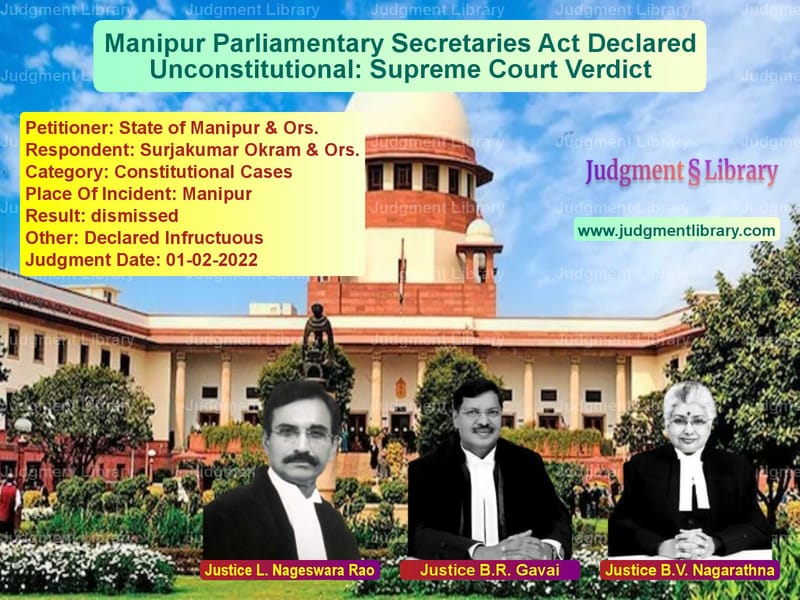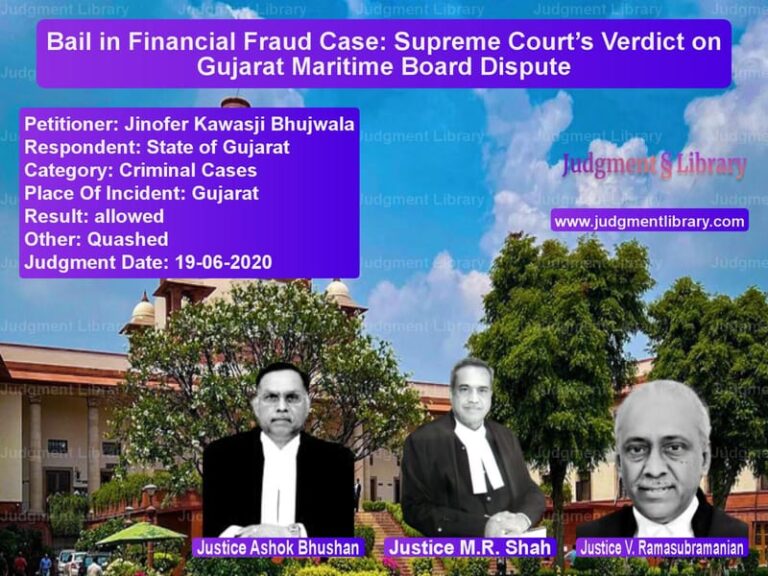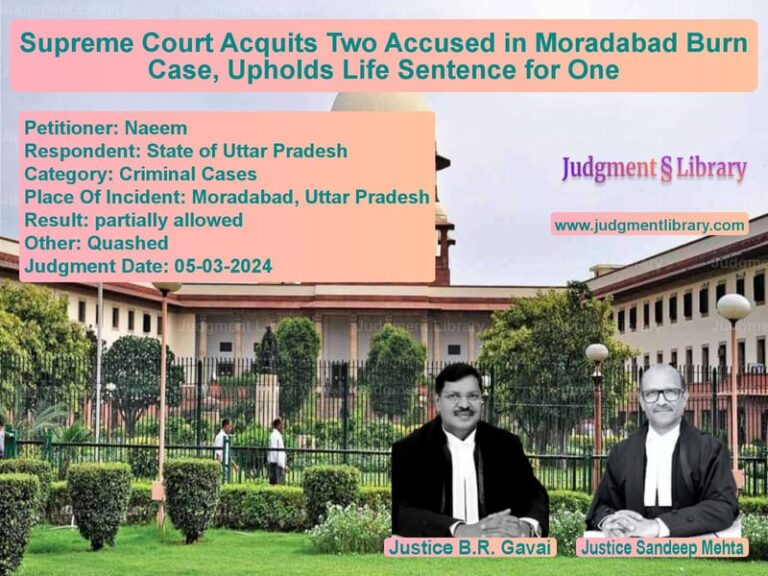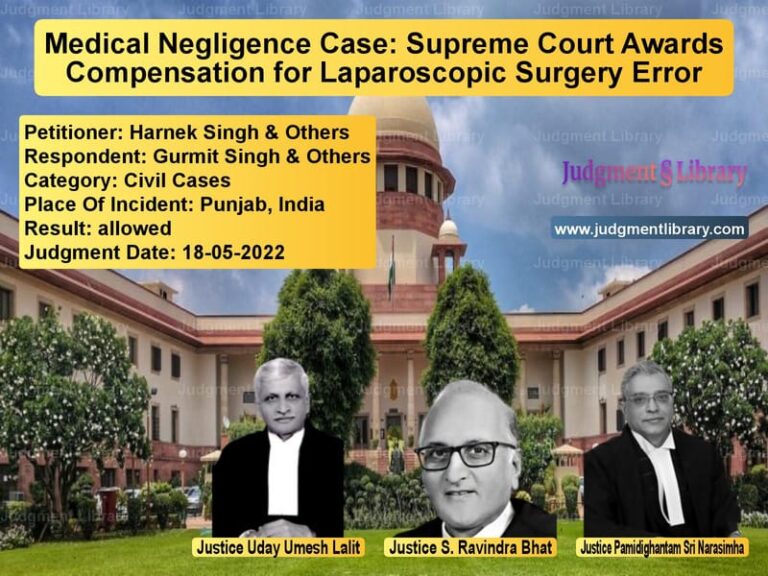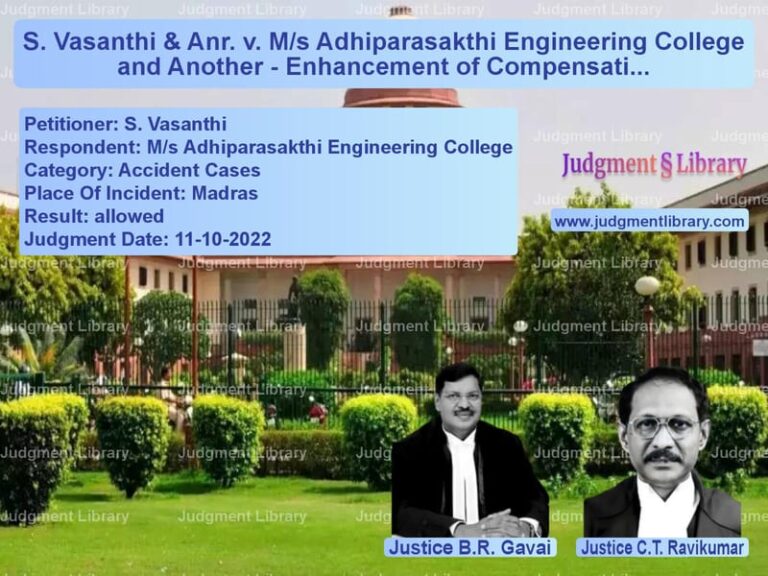Manipur Parliamentary Secretaries Act Declared Unconstitutional: Supreme Court Verdict
The legal battle concerning the Manipur Parliamentary Secretaries (Appointment, Salary, and Allowances) Act, 2012, has reached its finality with the Supreme Court striking down the Act and parts of its Repealing Act, 2018. This decision carries significant implications for legislative powers, governance, and parliamentary privileges.
In the case titled The State of Manipur & Ors. vs. Surjakumar Okram & Ors., the Supreme Court adjudicated on the constitutionality of the 2012 Act, which allowed the Chief Minister to appoint members of the Manipur Legislative Assembly as Parliamentary Secretaries with the rank and status of Ministers of State.
Background of the Case
The Manipur Legislature enacted the 2012 Act to provide for the appointment and benefits of Parliamentary Secretaries. Section 3, read with Section 4 of the Act, allowed the Chief Minister to appoint MLAs as Parliamentary Secretaries, granting them the same rank and status as Ministers of State. However, concerns arose about the constitutionality of such appointments.
The Supreme Court had previously struck down a similar law in Assam (Bimolangshu Roy v. State of Assam), ruling that the Assam Legislature lacked the competence to pass the Act. Following this, Manipur repealed its own 2012 Act through the Repealing Act, 2018, while attempting to retain certain benefits and protections for the former Parliamentary Secretaries via a saving clause.
Legal Challenge
- Public Interest Litigations (PILs) were filed in the Manipur High Court challenging both the 2012 Act and the validity of the Repealing Act, 2018.
- The High Court ruled in favor of the petitioners, striking down both legislations.
- Aggrieved by the ruling, the State of Manipur and former Parliamentary Secretaries appealed to the Supreme Court.
Petitioners’ Arguments
The respondents (original writ petitioners) contended that:
- The Manipur Legislature lacked legislative competence to enact the 2012 Act.
- The saving clause in the Repealing Act, 2018, was an attempt to validate illegal appointments made under the 2012 Act.
- The Assam Act, which was word-for-word similar to the Manipur Act, had already been declared unconstitutional, making the Manipur Act equally invalid.
Appellants’ Arguments
The State of Manipur and the affected Parliamentary Secretaries countered:
- The 2012 Act was valid until it was repealed, and the repeal should not affect past actions taken under it.
- The decision in Bimolangshu Roy should be reconsidered, as the legislative power for such an Act could be derived from Entry 40 of the State List (Salaries and Allowances of Ministers).
- The Repealing Act, 2018, was necessary to safeguard the rights, privileges, and obligations of those who served as Parliamentary Secretaries.
Supreme Court’s Observations
The Supreme Court, in its judgment, analyzed the constitutional validity of the 2012 Act and the impact of its repeal.
The Court reaffirmed its decision in Bimolangshu Roy, holding that:
“The Legislature of Manipur did not have the power to create the post of Parliamentary Secretary, as this power is not conferred by any constitutional provision or legislative entry.”
On the saving clause in the Repealing Act, 2018, the Court noted:
“By means of the saving clause, the Manipur Legislature could not have infused life into a legislation that was unconstitutional and thereby a nullity.”
Final Judgment
The Supreme Court delivered the following rulings:
- The 2012 Act is unconstitutional due to lack of legislative competence.
- The saving clause in the Repealing Act, 2018, is struck down.
- However, to prevent disruption in governance, the Court ruled that past decisions and actions taken by Parliamentary Secretaries under the 2012 Act would remain valid.
Implications of the Judgment
This ruling has broad ramifications:
- It upholds the principle of separation of powers, preventing state legislatures from creating positions beyond their constitutional mandate.
- It reinforces the Supreme Court’s authority in declaring laws unconstitutional and restricting attempts to validate such laws through repealing acts.
- It ensures that past administrative actions under the 2012 Act remain unaffected to avoid governance paralysis.
The Supreme Court’s verdict sends a clear message on the limits of legislative power and the importance of adhering to constitutional principles when enacting laws.
Petitioner Name: State of Manipur & Ors..Respondent Name: Surjakumar Okram & Ors..Judgment By: Justice L. Nageswara Rao, Justice B.R. Gavai, Justice B.V. Nagarathna.Place Of Incident: Manipur.Judgment Date: 01-02-2022.
Don’t miss out on the full details! Download the complete judgment in PDF format below and gain valuable insights instantly!
Download Judgment: state-of-manipur-&-o-vs-surjakumar-okram-&-o-supreme-court-of-india-judgment-dated-01-02-2022.pdf
Directly Download Judgment: Directly download this Judgment
See all petitions in Legislative Powers
See all petitions in Public Interest Litigation
See all petitions in Separation of Powers
See all petitions in Fundamental Rights
See all petitions in Constitution Interpretation
See all petitions in Judgment by L. Nageswara Rao
See all petitions in Judgment by B R Gavai
See all petitions in Judgment by B.V. Nagarathna
See all petitions in dismissed
See all petitions in Declared Infructuous
See all petitions in supreme court of India judgments February 2022
See all petitions in 2022 judgments
See all posts in Constitutional Cases Category
See all allowed petitions in Constitutional Cases Category
See all Dismissed petitions in Constitutional Cases Category
See all partially allowed petitions in Constitutional Cases Category

